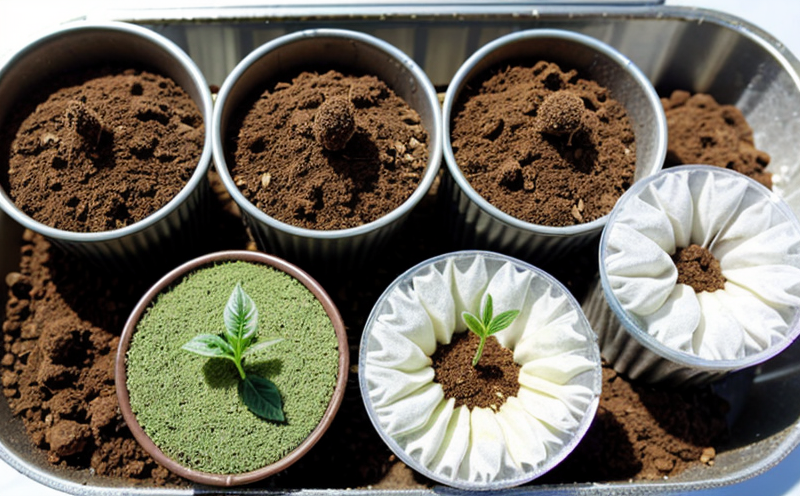Root-to-Shoot Ratio Testing in Seedlings
The root-to-shoot ratio (R/S) is a critical indicator of seedling quality and overall plant health, playing an essential role in determining the potential yield and resilience of agricultural crops. This parameter provides insights into the balance between carbohydrate storage and photosynthetic capacity within the early stages of plant development.
Seedlings with optimal R/S ratios are more likely to exhibit robust growth patterns, enhanced nutrient uptake efficiency, and better adaptation to environmental stressors such as drought or nutrient depletion. These characteristics are particularly crucial in agriculture and forestry testing where seed quality directly impacts crop performance and sustainability.
In the context of our laboratory services, we utilize advanced analytical techniques to accurately measure the R/S ratio of seedlings across various species, ensuring precision in our evaluations. Our approach involves meticulous specimen preparation, which includes careful washing, drying, and weighing of both root and shoot portions under standardized conditions.
The instrumentation used for this testing process adheres strictly to international standards such as ISO 17025 and ASTM E691, ensuring that our results are reliable and reproducible. Our team of experts employs sophisticated equipment like precision balances and digital imaging systems to quantify the mass and dimensions of root and shoot components.
The testing protocol typically begins with selecting a representative sample size from each seed lot. Once collected, seeds undergo germination in controlled environments until they reach the specified developmental stage required for R/S ratio assessment. Afterward, the roots and shoots are separated carefully before being weighed individually to calculate their respective masses.
Accurate measurement of these parameters is vital because even small deviations can significantly influence predictions about future plant health and productivity. By providing detailed reports that include raw data along with calculated R/S ratios, we assist clients in making informed decisions regarding seed selection and breeding programs aimed at improving agricultural yields.
- Standardized specimen preparation to ensure consistent results
- Use of precision balances for accurate mass measurement
- Adherence to ISO 17025 and ASTM E691 standards for reliability
- Expertise in interpreting R/S ratios within the context of plant biology
Customer Impact and Satisfaction
Our clients benefit greatly from our comprehensive root-to-shoot ratio testing services, as these tests help identify high-quality seeds that will perform optimally under field conditions. By leveraging this information during breeding programs or procurement processes, customers can enhance the success rates of their agricultural projects.
The precision and accuracy offered by our laboratory contribute significantly to customer satisfaction, allowing them to trust in the reliability of their sourcing decisions. For R&D engineers involved in developing new varieties or improving existing ones, having access to detailed reports enables better understanding of genetic traits associated with desirable characteristics like strong root systems.
Compliance officers also find value in our testing capabilities, ensuring that they meet regulatory requirements related to seed quality and purity before marketing products. Procurement teams can rely on these assessments when evaluating suppliers or comparing different lots of seeds for purchase.
International Acceptance and Recognition
The root-to-shoot ratio testing method is widely accepted globally due to its relevance in assessing plant health and productivity. Our laboratory complies with international standards, including ISO 17025 for quality management systems and ASTM E691 for statistical methods used in testing and evaluation.
Many countries have adopted these standards as benchmarks for seed quality assurance, recognizing the importance of accurate measurement techniques like ours. Compliance with such norms ensures that our results are internationally recognized and comparable across borders, facilitating trade activities involving agricultural commodities.
Environmental and Sustainability Contributions
Evaluating root-to-shoot ratios contributes positively to environmental sustainability by promoting efficient use of resources such as water and fertilizers. Plants with favorable R/S balances tend to utilize these inputs more effectively, reducing waste and minimizing negative impacts on ecosystems.
- Encourages sustainable agricultural practices
- Promotes resource efficiency in crop production
- Reduces environmental footprint through optimized nutrient uptake
- Supports biodiversity by creating healthier soil conditions





